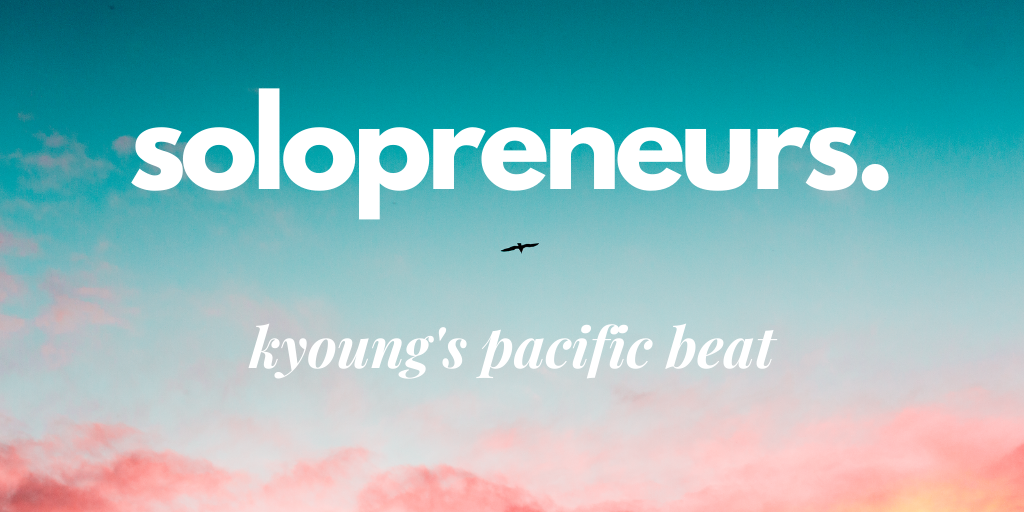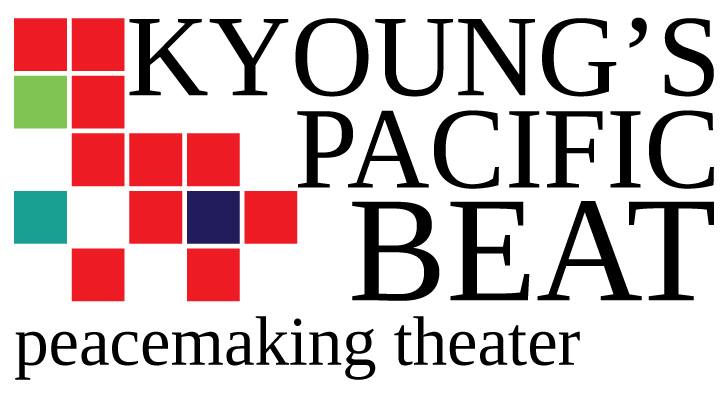Throughout this month, we’ll be highlighting interviews with some of our fantastic “solopreneur” clients. For Benvenuti Arts, solopreneurs are solo artists and solo artist organizations that have carved their place in their respective artistry fields while also running their businesses.
In this post, we’ll be talking with Kyoung H. Park, Artistic Director of Kyoung’s Pacific Beat! In their own words, “Kyoung’s Pacific Beat (KPB) is a peacemaking theater collective dedicated to working with artists, non-artists, and local communities to transform experiences of oppression into peace messages through public performance.”
In order to return to the theater, our organization must thrive.
Kyoung H. Park, Artistic Director of Kyoung’s Pacific Beat
When you decided to start your venture, what were the first steps you took to make your dream a reality?
After eight years trying to find my way as an immigrant playwright, I decided to establish my own theater company in 2011 and enlisted my friends to help me get “Pacific Beat Collective” started. Amanda Crater, a college friend of mine, helped me co-found the group and produce an underground salon at a friend’s apartment, where we invited artists from different disciplines to share their new works-in-progress while I mixed free cocktails. At the same time, we were associate producers of the World Premiere of my play disOriented with Carlos Armesto’s Theater C, while we launched our company’s first teaser webpage and opened an account with our fiscal sponsor, Fractured Atlas.
As we figured out the logistics of running a small arts organization – which remained pretty underground until I got my Greencard in 2014 – we worked on our company’s second show – TALA. This project taught us how to devise and self-produce our own work by trial and error. We made so many mistakes, but did our best to center our artists, the work, our needs, and align what we were doing with our peacemaking mission, which has remained a constant for the past ten years
How do you manage running your small arts organization?
By 2014, the theater company and I had gone broke and I was almost deported for a second time from the country. It became very clear to me that running a small arts organization was NOT a way to make a living and that our organization would only stay afloat if we understood the financial limitations of being a small arts organization and how to work within these constraints.
In 2014, we renamed the company “Kyoung’s Pacific Beat” because we needed to create a financial and administrative container for the fundraising, marketing, producing, and administration I was running for the company in between survival day jobs, artistic gigs, and rehearsals of our own work. Until last year, our company basically grew through the generosity of our artists, my sweat equity, and limited funds provided to us by a few intermediary funders and a couple of major donors that could write us a big check to help us get paid for the work we were doing as a collective.
I was part – and still am – part of multiple arts leadership programs which have helped me strengthen our organization’s capacity by developing 1 and 3-year long strategic plans and the business skills necessary to see them through. Last year, during the pandemic, I activated a 10-year visioning document I’ve been developing for our organization, so in the midst of the pandemics of coronavirus and systemic racism, I’ve tried to balance the needs of our ensemble, our organization, and community in a way that remains consistent with our company’s long-term artistic and professional goals.
While doing this, our biggest lesson learned has been that the gig and sweat economy of the downtown arts scene never really worked, and that the scarcity mentality with which we produced our shoe-string productions is not going to be the way our organization can move forwards. In order to return to the theater, our organization must thrive.
What tips do you have for solo artists interested in starting their own orgs?
I was raised by self-made, immigrant parents who have run their own small businesses ever since I remember. I think running a business and being financially, legally and morally responsible for the way we come together to work and get paid, is something I was taught for better, or worse, by my parents. I think this experience helped me compliment my arts training, which was all about the art, but nothing to do with how artists conduct their professional business. This was a steep learning curve, often demoralizing, for me; especially when you see how the lack of funding for individual artists makes what we do, as small entrepreneur led organizations, really challenging. Add to that the dearth of funding for arts organizations led by artists of color, and then your spirit can truly be crushed.
Despite these systemic barriers, our organization has always found a way to keep making work. To that, credit is much due to the artists who have been part of Kyoung’s Pacific Beat’s Mondragons – or resident artists – for over ten years, as we’ve developed an artistic collective that is capable of collaborating with such great knowledge of each other’s sensibility and creative strengths. The second is our queer, APIA and BIPOC LGBQT+ community – we make our work with, by and for our community, which has helped us center our needs over the validation artists often seek from producing/presenting institutions.
And thirdly, do not let funders and donors take you off your path. We’ve had amazing funders give generously for us to do the work; we’ve had horrible funders that have harmed us by taking advantage of their financial powers to cause actual damage to us. “Not all things that are shiny are good,” was something I was told while sitting on a grant panel. I think about this little bit of wisdom a lot.
What is something you wish you would have known when you first started out?
When we started the company, many in the ensemble were like me – emerging, immigrant, queer artists of color trying to be seen and valued as artists. Ten years later, we’ve all developed successful careers and come back together for the artistic work, as most of us make a better living elsewhere in the field. However, in the beginning, we all wanted to be seen and recognized as artists and that led our theater company to make good work where frankly, I got way too much credit and was given way too many responsibilities, because I wanted this company to work.
This year, as part of our organization’s growth, we’ve transformed one more time by becoming a non-profit, providing the leadership of our organization to six incredible women and gender non-conforming people of color in our community to steward the long-term vision of the organization. And I’ve financially separated myself from the company, so that the theater organization and my own identity as an artist are no longer intertwined.
A theater organization is not about ONE artist and even though I now dedicate myself full-time to the organization, which still carries my name, I have to remind myself that this organization is not who I am, nor what my art is, because at this point, the organization has its own life and its own needs, beyond and separate to mine. This distinction has become really necessary and essential for me. I’ve been told this many times before, but it has only hit me now as something that truly needs to be fully addressed.
I wish I had the clarity to have this kind of separation from the organization from the beginning. It would have helped me create boundaries between who I am, and the overwhelming needs of running an arts organization. This boundary would have ultimately encouraged me to define myself for who I am, rather than allowing myself to be defined by my artistic work or the successes and failures of our organization.



